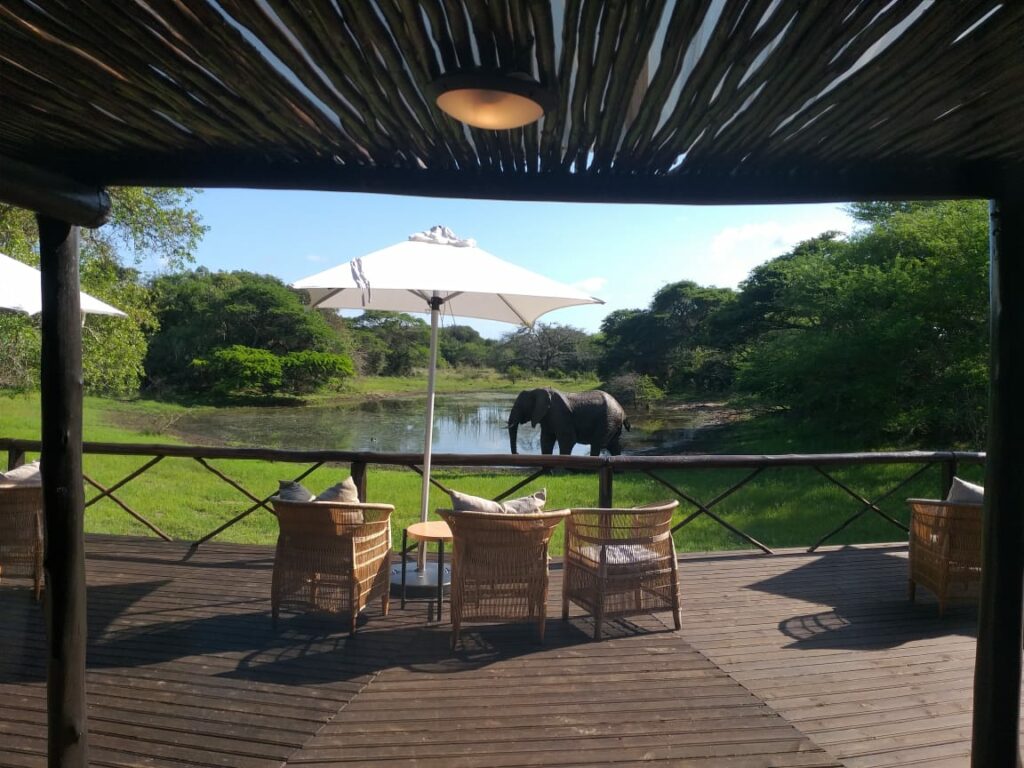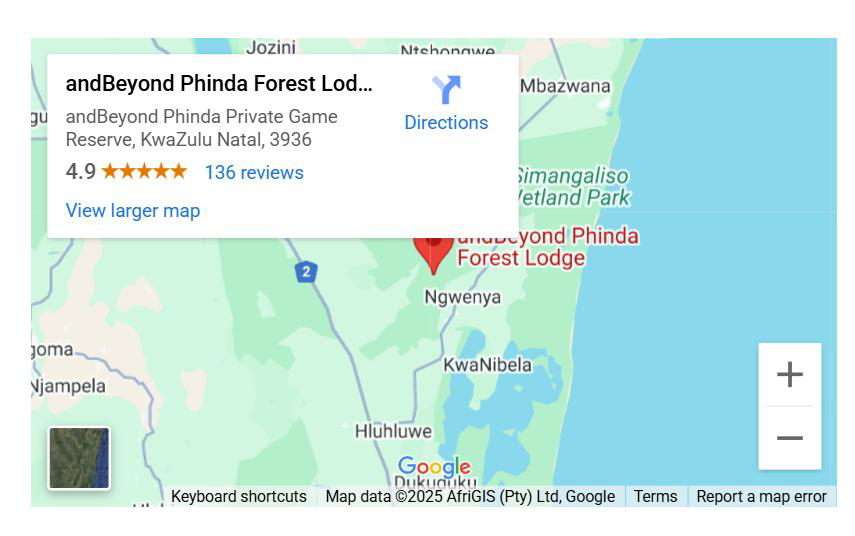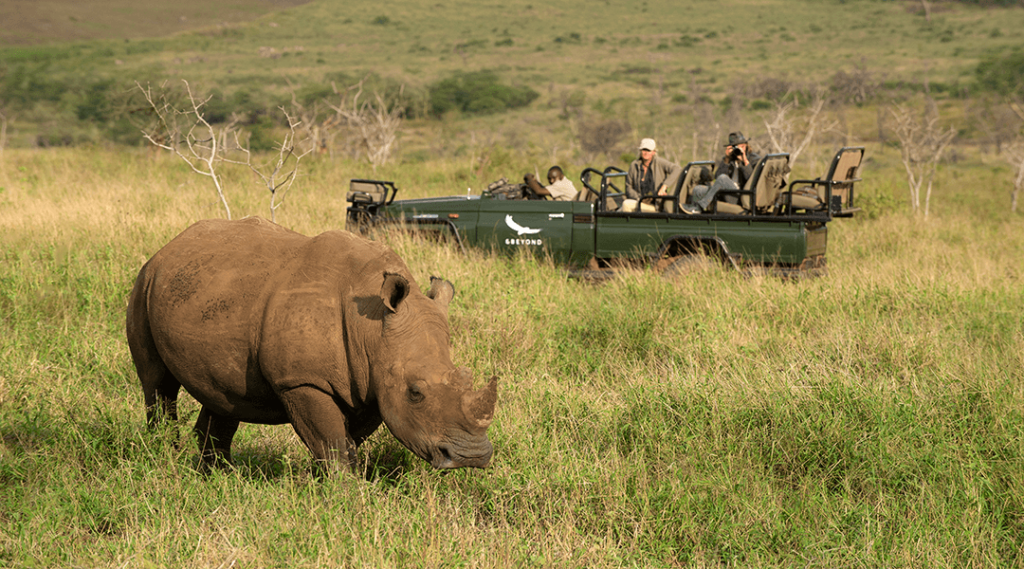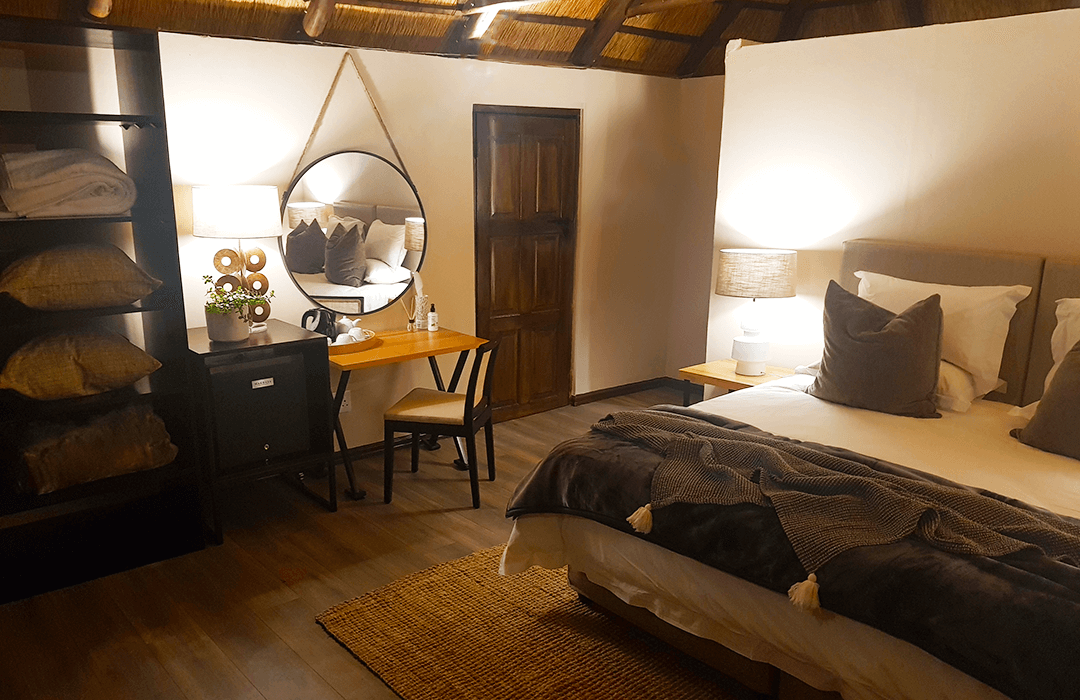
PROJECT NAME / SITE:
Makhasa Private Game Lodge
--------------------------------------------------------
INDUSTRY:
wildlife conservation, cultural heritage preservation, and sustainable tourism practices
--------------------------------------------------------
MAIN CONTACT PERSON:
Mr Thokozani Thiyamazwi Mlambo
--------------------------------------------------------
Business Registration number:
2010/022891/07
--------------------------------------------------------
PROJECT LOCATION:
Munyawana Private Game Reserve, Phinda Forest Lodge Gate, D448 District Road, Hluhluwe, 3960
PROJECT PARTNERS:
- &Beyond Phinda (Professional Guide Services)
- Wild Tomorrow Fund (Strategic Conservation Partner)
- iSimangaliso Wetland Park Authority (Operational Support & Stakeholder Facilitation)
- Munyawana Conservancy (Protected Area Management)
- Local Community Suppliers (Agricultural Produce and Artisanal Crafts)
--------------------------------------------------------
Investment Range / ROI
--------------------------------------------------------
Public or Private Sector
This is a Private Sector Opportunity
--------------------------------------------------------
When was your business established?
2022
Environment
The project will substantively improve existing environmental conditions through multiple integrated mechanisms:
- Materially strengthening the economic business case for maintaining the land under formal conservation status rather than converting to environmentally detrimental alternative land uses
- Generating significantly increased revenue streams dedicated to conservation initiatives and biodiversity management within the reserve
- Implementing comprehensive water management systems through infrastructure upgrades, substantially reducing pressure on local water resources
- Expanding support for systematic alien invasive plant species removal and habitat restoration efforts across the reserve ......
Social Impact
The strategic expansion of Makhasa Private Game Lodge will significantly enhance livelihoods within the local community through multiple interventions:
- The strategic expansion of Makhasa Private Game Lodge will significantly enhance livelihoods within the local community through multiple interventions:
- Creation of 15-20 additional permanent formal-sector employment opportunities, directly benefiting economically vulnerable local households
- Development of specialised, market-relevant skills in hospitality management, conservation practice, and tourism operations with recognised certification
- Substantial increase in monthly household income flowing into the community through wages, salaries and community trust dividends.
DESCRIPTION OF THE MAKHASA PRIVATE GAME LODGE
Makhasa Private Game Lodge represents a premier community-driven conservation enterprise strategically positioned within the prestigious Munyawana Private Game Reserve in KwaZulu-Natal. Established in 2022 following a successful land restitution claim by the Makhasa community, the lodge exemplifies an exceptional convergence of wildlife conservation, cultural heritage preservation, and sustainable tourism practices.
The investment opportunity entails a strategic capital expansion programme for the lodge's facilities to incorporate a wellness spa centre, executive conference facilities, luxury family accommodation units, and modern fitness amenities. These enhancements will effectively address current operational capacity constraints whilst simultaneously diversifying revenue streams and generating substantial additional employment opportunities for the local community. The proposed development will materially strengthen the lodge's competitive market position and enhance its conservation impact whilst preserving the region's unique natural and cultural heritage assets.
THE PROBLEM THE PROJECT IS ADDRESSING
- Suboptimal accommodation capacity restricting revenue potential and market penetration
- The absence of family-oriented accommodation configurations limits access to a lucrative market segment.
- Lack of integrated wellness, conference, and recreational facilities reducing guest retention metrics and average stay duration
- Inadequate water infrastructure compromising operational efficiency and sustainability
- Substandard access roads negatively impact guest experience and vehicle maintenance costs.
- Insufficient revenue diversification creates vulnerability to tourism market fluctuations and economic cycles.
- Limited employment opportunities for local community members within the formal economy
- Need for commercially viable, ecologically sustainable alternatives to conventional land use in biodiversity-rich areas.
NATURE OF BUSINESS
Makhasa Private Game Lodge proposes a comprehensive capital expansion and infrastructure enhancement programme to address the identified challenges through a strategic phased implementation approach:
- Construction of four luxury family accommodation units to increase capacity and penetrate the high-value family tourism market segment
- Development of a bespoke wellness spa centre with multiple treatment rooms, relaxation areas and Indigenous treatment offerings
- Establishment of a multipurpose conference venue with capacity for up to 40 delegates with state-of-the-art facilities
- Integration of premium fitness facilities and recreational amenities to enhance guest experience
- Substantial upgrade of water infrastructure systems to ensure operational resilience and sustainability
- Comprehensive renovation of access roads to enhance guest arrival experience and operational efficiency
The lodge will continue its core business of providing premium all-inclusive luxury safari experiences within a prestigious Big 5 game reserve, strategically enhanced with complementary facilities designed to extend average guest stay duration and substantially increase revenue per guest. The community-ownership model will remain the foundational element of operations, ensuring sustainable economic benefits flow directly to local community stakeholders.
THE BIODIVERSITY AND CONSERVATION PRIORITIES OF THE PROJECT
- Preservation and protection of pristine natural habitats within a formally protected 30,000-hectare Big 5 game reserve ecosystem
- Conservation of the rare and critically endangered Sand Forest ecosystem, recognised as a biodiversity asset of global significance
- Strategic contribution to the regional wildlife corridor established through the incorporation of Makhasa Nature Reserve within the broader Munyawana Conservancy framework
- Implementation of comprehensive wildlife monitoring and protection programmes in partnership with recognised conservation authorities
- Material support for targeted conservation initiatives protecting priority species, including black rhinoceros, white rhinoceros, cheetah, lion, and pangolin populations
- Development and delivery of integrated environmental education programmes for both guests and staff
- Systematic alien invasive plant species removal and habitat restoration initiatives
- Maintenance of ecological integrity within a globally significant biodiversity hotspot
- Protection of critical water resources, including tributaries that feed into nationally significant wetland systems
OUTCOMES & IMPACT
1. Economic Development:
- Substantial increase in lodge revenue by approximately 65% within a 36-month period post-implementation
- Creation of 15-20 additional permanent positions exclusively for local community members
- Significantly expanded skills development programme capacity with specialised roles in wellness therapy, events management, and technical maintenance
- Measurably strengthened local supply chain through increased procurement volume and supplier development initiatives
- Enhanced economic diversification beyond traditional livelihoods, creating resilience within the local economy
2. Job Creation:
- 15-20 new permanent positions strategically created within the lodge operations across multiple departments
- Additional 5-7 skilled and semi-skilled positions during the construction and development phase
- Substantial indirect job creation through increased procurement from local suppliers and service providers
- Expanded skills development programme with 5 additional trainee positions focused on youth development
- Creation of career advancement pathways in tourism, conservation and hospitality management
3. Conservation:
- Significantly increased revenue supporting enhanced conservation initiatives and ecosystem management.
- Implementation of improved environmental education facilities for guests, staff and community members
- Development of water conservation infrastructure with broad benefits for the surrounding ecosystem
- Enhanced protection of biodiversity through a demonstrably sustainable tourism model
- Measurably strengthened community commitment to conservation principles through direct economic benefits.
THE BARRIERS AND CHALLENGES THE PROJECT FACES?
- Critical water security challenges requiring substantial infrastructure investment for long-term sustainability
- Substandard road access infrastructure requiring comprehensive improvements
- Intensifying competition from nearby reserves and lodges requiring strategic market differentiation
- Potential economic downturn affecting domestic and international tourism spending patterns
- Climate change impacts affecting wildlife viewing conditions and seasonal patterns
- Accelerated degradation of infrastructure due to environmental conditions
- Wildlife management challenges requiring specialised expertise and resources
- Suboptimal revenue structure with disproportionate fees currently allocated to &Beyond Phinda for game drive services
WHAT THE NATURE OF CAPITAL INVESTMENT OR SUPPORT REQUIRED
The funding support required is outlined in the following strategic capital allocation framework:
| Strategic Investment Category | Capital Allocation Required |
| Luxury Family Accommodation Units | R3,200,000 |
| Premium Spa and Wellness Centre | R1,500,000 |
| Executive Conference Facilities | R1,800,000 |
| Fitness and Recreational Amenities | R800,000 |
| Water Infrastructure Systems | R700,000 |
| Access Road Enhancement | R500,000 |
| Total Capital Requirement: | R8,500,000 |
LOCATION OF PROJECT
Makhasa Private Game Lodge is strategically situated within the Munyawana Conservancy, a formally protected 30,000-hectare nature reserve in KwaZulu-Natal, officially designated under South Africa's National Environmental Management Act. The conservancy shares a boundary with the iSimangaliso Wetland Park, a UNESCO World Heritage site of international significance. This exceptional location positions Makhasa within one of South Africa's most ecologically valuable biodiversity hotspots spanning the southern Lebombo Mountain Range, which contains critically important sand forest habitats classified as exceptionally rare. The area supports the complete complement of Big 5 wildlife populations and hosts over 436 documented bird species across seven distinct habitat types, establishing it as an area of exceptional biodiversity richness and conservation significance.
DOES THE PROJECT PROMOTE THE EXPANSION OF PROTECTED AREAS?
The Makhasa community's strategic decision to maintain their ancestral land as an integral part of the Munyawana Conservancy following their successful land restitution claim actively supports the continued protection of this critical habitat. Rather than pursuing conventional land conversion to alternative economic uses, the community has deliberately chosen to develop a sustainable tourism model that maintains and enhances the area's ecological integrity. The project significantly strengthens the economic case for conservation by demonstrating conclusively that protected areas can generate sustainable livelihoods and substantial community benefits when managed with a disciplined focus on biodiversity conservation principles.







